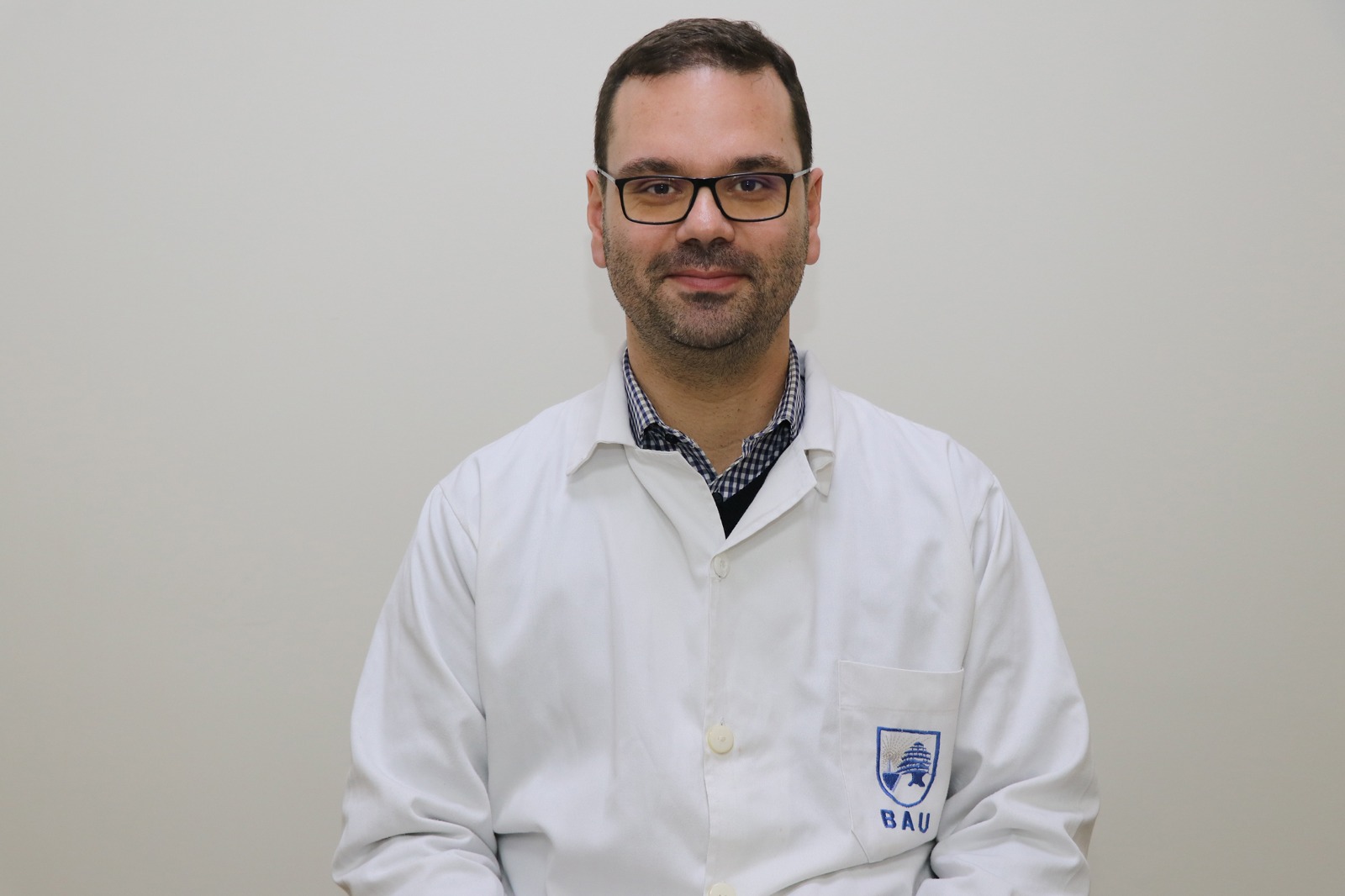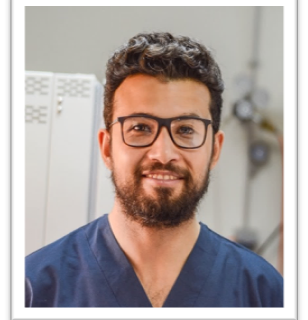
Dr. Ayman is a Senior Research Associate and “Cell and Tissue Biology Unit” Manager at Aswan Heart Centre – Magdi Yacoub Foundation. He is also an Associate Professor at the Faculty of Science, Cairo University. In 2011, he was granted his master’s degree from the Faculty of Science, Cairo University on Telomerase activity in Human breast cancer biology, and in 2013, he Joined Dr. Torsten Stein Lab at Glasgow University, Scotland, UK, for his PhD studies on Extracellular matrix remodeling in mammary gland and Breast Cancer invasion and metastasis. Dr. Ayman then joined Prof. Magdi Yacoub’s lab in 2016 for his Postdoc studies to investigate Extracellular Matrix remodeling in cardiovascular pathologies in addition to his studies on using patient-specific induced pluripotent stem cells (iPSCs) as an in vitro model for inherited cardiac conditions such as Hypertrophic cardiomyopathy. In 2019, he was awarded a 1yr fellowship at Dr. Heather Machado’s laboratory at the school of Medicine, Tulane University, LA, USA, to train on novel methodologies for ECM studies in biological systems and employ “matrisome” signature in molecular diagnostics. His current research at Aswan Heart Centre focuses on the molecular and cellular mechanisms, and ECM remodeling drivers in cardiac and extra cardiac tissues of Hypertrophic cardiomyopathy and Heart Failure, to identify novel and personalized molecular diagnostic tools and therapeutics.

Dr. Sarah Halawa is a post-doctoral researcher and manager of the Cardiovascular Bioinformatics Unit at Magdi Yacoub Aswan Heart Centre (Magdi Yacoub Heart Foundation) (AHC). She completed her PhD in Applied Sciences and Engineering with a specialization in Biotechnology focused on data science and bioinformatics in December 2020 as a joint collaboration between the American University in Cairo (AUC) and AHC. Her PhD focused on profiling genome-wide DNA methylation patterns in human aortic and mitral valves for which she has been awarded the L’Oréal-UNESCO For Women in Science Fellowship in 2019. She obtained her MSc in Physics in 2014 at AUC and her BSc in Electronics Engineering from AUC with a minor in Mathematics in 2011. Her multidisciplinary background enables her to work with highly qualified teams on challenging interdisciplinary projects that primarily focus on cardiovascular diseases (CVDs) specific to the Egyptian population. In addition to expanding on her PhD work, she currently works on many projects with a focus on translational bioinformatics and the integration of bioinformatic techniques into genetic and clinical research to improve health outcomes for patients.
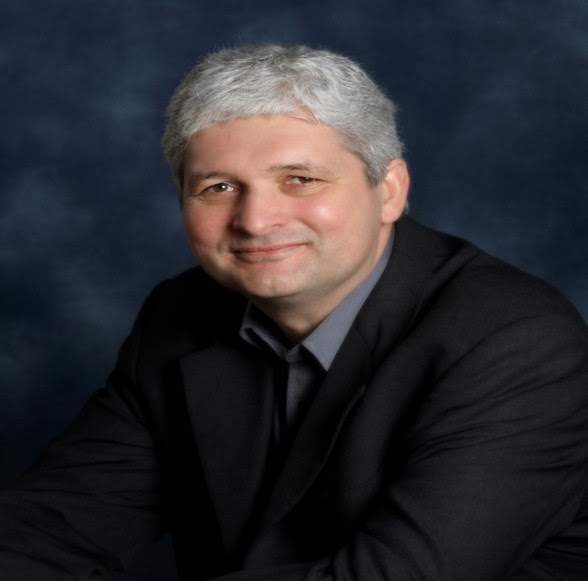
Ingolf Cascorbi is Professor of Pharmacology and Vice Dean of Studies at the Medical Faculty, University of Kiel and Director of the Institute of Experimental and Clinical Pharmacology, University Hospital Schleswig-Holstein, Campus Kiel, Germany. He holds a PhD in biochemistry, an MD and is specialist in clinical pharmacology. His research interests are in variability in drug response, in particular in pharmacogenomics and -epigenomics and mechanisms of drug resistance in oncology. Ingolf Cascorbi is President of the International Union of Basic and Clinical Pharmacology IUPHAR (2018-2024)), President of the German Society of Experimental and Clinical Pharmacology DGPT (2020 and 2023) and Chairman of the German Society of Clinical Pharmacology and Therapeutics DGKliPha (2019-2024). He is member of various scientific and editorial Boards i.e. since 2012 Associate Editor of ‘Clinical Pharmacology and Therapeutics’.

Professor Rajaa Fakhoury is a professor of Medical Biochemistry; she has completed her MSc from the American University of Beirut, Medical School, Department of Biochemistry and her PhD from Manchester University Medical School, Department of Rheumatology and postdoctoral studies from the same university department of Integrated Genomic Medical Research. After her graduation from Manchester University in 1993, she joined Beirut Arab University, Faculty of Pharmacy, Department of Biochemistry and Pharmacology. She worked at King Saud Bin Abdel Aziz University for Health Sciences and at Alfaisal University, College of Medicine. Currently, Professor Fakhoury is the dean of the Faculty of Health Sciences, Beirut Arab University. She has published more than 40 papers in the field of Molecular Medicine and Pharmacogenomics.
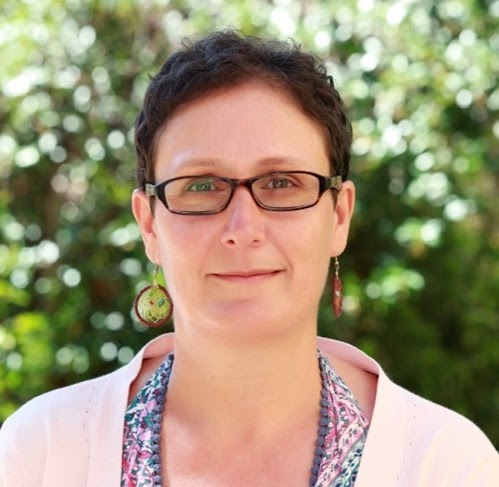
Dr. Zgheib is Tenured and Board Designated Professor at the Department of Pharmacology and Toxicology, American University of Beirut Faculty of Medicine (AUBFM). She is a Family Physician, graduate of the AUB. She then trained in pharmacogenetics (PGx), drug metabolism, and inter-individual variability at the Center for Clinical Pharmacology at the University of Pittsburgh.
Dr. Zgheib launched the PGx laboratory at AUBFM in 2007. Several projects on the genetic polymorphisms of drug metabolizing enzymes and transporters with treatment of cancers to include breast cancer and childhood leukemias are ongoing. She initially started with the “candidate gene” PGx approach and recently moved to higher throughput analyses. Current projects are hence geared towards performing more extensive genotyping, and including bigger and more representative population samples such as by developing research registries and prospectively following up patients.
The PGx lab is also part of toxicology projects that aim at understanding the role and mechanism of environmental toxigens in cancer. Dr. Zgheib also leads the cardiovascular biorepository at the Vascular Medicine Program, and is currently involved in research projects with the aim to elucidate epigenetic biomarkers for the link between cardiovascular diseases and air pollution. Notably, Dr. Zgheib has been leading a series of studies and scholarly efforts in knowledge translation with the aim to better understand the distinct challenges and opportunities for the clinical implementation of PGx in the MENA region.
Dr. Zgheib is funded by intramural and extramural grants. In 2020, she received the prestigious Abdul Hameed Shoman Award for Arab Researchers for PGx.

Mona has demonstrated an unwavering commitment to fostering organizational growth, youth empowerment, and community engagement throughout her career. Her ability to combine strategic planning with effective execution, her skills in building and maintaining relationships with key stakeholders, and her dedication to ensuring the success of various initiatives have left an indelible mark on business development and project management. Her journey is a testament to her passion, expertise, and relentless pursuit of excellence in her professional endeavors.
The most transformative phase of her career began in 2014 at the Al Alfi Foundation for Human & Social Development (AAF), where she currently serves as the Director of Development and Program Management. In this role, Mona leads strategy development for fundraising, program development, and implementation, aligning these initiatives with AAF’s mission and Egypt’s Sustainable Development Goals (SDGs). Her notable accomplishments include successfully developing and writing funding proposals and overseeing the planning, execution, and evaluation of AAF’s diverse programs.
Mona currently acts as the project manager of two Erasmus+ projects under Key Action 2 (KA2) – Cooperation for innovation and the exchange of good practices in the field of Capacity Building in the field of Higher Education: STREAM and OPPM Projects. STREAM Project aims to develop a generation of globally exposed university graduates equipped with essential character, social, and cognitive skills. On the other hand, the OPPM Project addresses the lack of academic educational programs on pharmacogenomics and personalized medicine in the region. She also acted as the project manager of the Career Guidance and Employability Project in its second phase. It is a project implemented by the International Labour Organization (ILO) in collaboration with Advance HE, Al Alfi, iCareer, and the UK Prosperity Fund – Skills for Prosperity Egypt. She successfully managed the planning, implementation, and evaluation of activities to enhance the skills, knowledge, and abilities of students and fresh graduates from Egyptian Public universities to contribute to Egypt’s increased Capacity for inclusive economic growth.
In 2019, she further expanded her responsibilities as the Director of the Scholarships Program at AAF. This role involves developing strategies for the scholarship program, managing the application and selection process, and monitoring the progress of scholarship recipients. Her leadership has significantly impacted AAF’s scholars’ academic and career progression.

Professor Dr. Sanaa A. Haroon is a professor at Fayoum University. She is the Director of Nematology and Biotechnology research laboratories, Egyptian Representative in the International Federation of Nematology Societies, and General Director of Fayoum university TICO office (Technology Innovation Commercialization Offices).
She managed 23 projects as principal investigators from different donors (USAID, DAAD, Ministry of Agriculture, Academy of scientific research & technology, European Union, Hohenhiem University, Sweden, Tempus, Erasmus +). Dr. Haroon has published 78 scientific papers in the area of molecular biology & nematology, biological control, and population dynamics. She is a member of 9 international organizations worldwide. She was a visiting scientist in different universities (Sweden, Germany, USA, Netherlands, and Austria) and a key speaker at international conferences. Dr. Haroon obtained various awards (National Promotion for Sciences Prize Academy of Science ministry of higher education, Cairo University in the area of Molecular Biology (Excellence Prize), Prime Minister in the Global Environmental Day, Fayoum University El Rwad prize for scientific research)
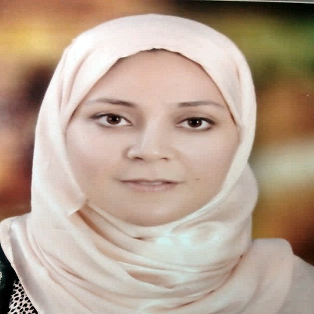
Lecturer of biochemistry at the faculty of pharmacy, Fayoum University, Egypt, from 2020 till now. Worked as a Lecturer of Biochemistry at the Faculty of Pharmacy- Delta University for 3 years. Completed her Master’s and Ph.D. studies in pharmaceutical sciences (Biochemistry) at Zagazig University, Egypt. She has 12 scientific papers published in international journals with research interests in cancer biology, liver diseases, liver regeneration, stem cell, kidney disease, lung fibrosis, and inflammation.




